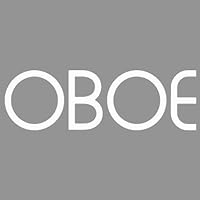As an engineering student, finding the right laptop is crucial for handling the demands of your coursework. In this article, we will explore the best laptops that engineering students should consider in 2023.
Key Takeaways:
- Choosing a powerful and portable laptop is important for engineering students.
- Factors to consider include affordability, portability, and performance.
- The HP ZBook Firefly 14 G8 Mobile Workstation is a well-rounded laptop that offers powerful performance
- The Dell XPS 17 (2023) is a top pick for its powerful performance and sleek design.
- The Acer Aspire 3 is a budget-friendly option with decent performance.
- The Acer Swift 5 (2023) is the most portable option with impressive performance.
- The Lenovo Legion 5 Pro (2023) is the best choice for engineering students who are also gamers.
- The Asus Chromebook CM34 Flip offers long battery life for all-day use.
- The Lenovo ThinkPad X1 Nano is an honorable mention for its lightweight design and powerful performance.
- Consider factors like CPU, GPU, RAM, and storage when choosing the right laptop.
- Consult your school’s engineering department for specific recommendations.
- A powerful and portable laptop is essential for a successful study experience.
Factors to Consider When Choosing a Laptop for Engineering Students
When it comes to choosing a laptop for your engineering studies, there are several factors to consider. Affordability and portability are key considerations for engineering students on a budget or those constantly on the move between classes.
Affordability:
Engineering students often have to manage their expenses, so finding a laptop that fits their budget is crucial. Look for laptops that offer a good balance of performance and price. Consider opting for models that have slightly older processors or integrated graphics, as they can still handle most engineering applications without breaking the bank.
Portability:
As an engineering student, you’ll likely be moving from class to class or working on projects outside of the classroom. Opt for a lightweight and compact laptop that is easy to carry. Look for laptops with a screen size between 13 and 15 inches, as they strike a good balance between portability and screen real estate.
Performance:
While affordability and portability are important, it’s also crucial to have a laptop that can handle resource-intensive applications. Look for laptops with a powerful processor, such as an Intel Core i5 or Ryzen 5, and a dedicated graphics card if you plan to work on 3D CAD modeling or other graphics-intensive tasks. Aim for at least 8GB of RAM and a solid-state drive for faster performance.
Battery Life:
Considering the long hours spent in classes and working on projects, a laptop with good battery life is essential. Look for laptops that offer at least 6 to 8 hours of battery life to ensure you can get through a full day of classes without worrying about running out of power.
Connectivity:
Engineering students often need to connect multiple devices and peripherals for their projects. Look for laptops that offer a variety of ports, such as USB-C, USB-A, HDMI, and an SD card reader. This will allow you to easily connect external monitors, printers, and other devices.
Durability:
Given the demanding nature of engineering studies, it’s important to choose a laptop that is durable and built to withstand everyday wear and tear. Look for laptops with a sturdy build quality and consider laptops that have passed MIL-STD-810G military-grade testing for durability.
Operating System:
Consider whether you prefer a Windows, macOS, or Linux operating system. Windows is widely used and offers compatibility with a wide range of software. macOS is popular among creative professionals and offers a seamless integration with other Apple devices. Linux is favored by some engineering students for its flexibility and customization options.
By taking these factors into consideration, you can find a laptop that meets your needs as an engineering student without breaking the bank.
Best All-Rounder Laptop: HP Pavilion 15
For engineering students, we would recommend the HP Pavilion 15. It offers a powerful performance with its Intel Core i7 or AMD Ryzen 7 processor, which is ideal for running engineering software.
It also has a dedicated graphics card, such as the NVIDIA GeForce GTX 1650, for smooth rendering and modeling. With a sleek design and a range of connectivity options, the HP Pavilion 15 is a great choice for engineering students.
You can find more details and view the entire range of HP Pavilion 15 here.
Top Picks for Engineering Students: Dell XPS 17 (2023)
One standout laptop that engineering students should consider is the Dell XPS 17 (2023). With its high-performance specifications and sleek design, it is a top choice for engineering students who need a reliable and powerful machine.
The Dell XPS 17 boasts an expansive 17-inch 16:10 display, providing ample screen real estate for engineering students to work on resource-intensive projects. Its thin chassis makes it portable enough to carry from class to class, ensuring that students can have access to their work whenever and wherever they need it. Additionally, the laptop offers incredible battery life, allowing students to work for extended periods without worrying about running out of power.
Under the hood, the Dell XPS 17 is equipped with an Intel Core i7-13700H CPU, an Nvidia RTX 4070 GPU, 32GB of RAM, and 1TB of SSD storage. This powerful combination of hardware ensures smooth performance and quick processing speeds, even when running complex 3D CAD modeling programs or other resource-intensive applications. The laptop also features four Thunderbolt 4 ports, providing convenient connectivity options for peripherals and high-speed data transfer.
While the Dell XPS 17 is a high-performance machine, it does come with a few minor drawbacks. The absence of an OLED display option at its high price point may disappoint some users who value vibrant and immersive visuals. Additionally, the low-wattage GPU may limit 3D performance for those who require extensive gaming capabilities. However, these shortcomings are outweighed by the laptop’s overall performance and reliability, making it an excellent choice for engineering students.
The Dell XPS 17 (2023) is a comprehensive solution for engineering students who prioritize both performance and portability. Its powerful hardware, large display, and long battery life make it an ideal choice for tackling resource-intensive coursework and demanding projects. While it may have a higher price point and some minor limitations, the overall performance and reliability of the Dell XPS 17 make it a top pick for engineering students in need of a high-performance laptop.
Budget-Friendly Option: Acer Aspire 3
For engineering students on a budget, the Acer Aspire 3 is a great choice. It offers a combination of affordability and decent performance, making it an ideal option for those looking for a budget-friendly laptop.
The Acer Aspire 3 comes equipped with a Ryzen 3 7320U CPU, 8GB of RAM, and 128GB of PCIe SSD storage. While it may not have the most powerful specs on the market, it is more than capable of handling the computational tasks required by engineering coursework.
In terms of design, the Acer Aspire 3 may not be the most stylish laptop, but it is sturdy and built to last. Its full-size keyboard with a number pad provides ample room for comfortable typing, which is especially important when working on lengthy assignments or modifying CAD models.
One of the standout features of the Acer Aspire 3 is its workday-long battery life. With up to eight hours of continuous use on a single charge, this laptop can easily last through a full day of classes and study sessions without the need for frequent recharging.
Overall, the Acer Aspire 3 offers a solid combination of affordability, performance, and durability, making it a practical choice for budget-conscious engineering students.
Most Portable Option: Acer Swift 5 (2023)
If portability is a top priority for you, then the Acer Swift 5 (2023) should be on your radar. With its lightweight design and powerful performance, it is the perfect companion for engineering students on the go.
The Acer Swift 5 weighs a little under three pounds, making it incredibly easy to carry around campus or to pack in your bag for study sessions. Its compact design also ensures that it won’t take up much space in your backpack. Whether you’re rushing between classes or working on projects in the library, the Swift 5 is designed to keep up with your fast-paced student life.
Despite its lightweight build, the Acer Swift 5 doesn’t compromise on performance. It features an Intel Core i7-1260P CPU, Intel Iris Xe integrated graphics, 16GB of RAM, and 1TB of PCIe NVMe SSD storage. This powerful combination allows you to smoothly run resource-intensive engineering software and tackle complex projects without any lag or slowdown.
The 14-inch display of the Acer Swift 5 is bright and spacious, thanks to its 16:10 aspect ratio and 2560×1600 resolution. It provides a vibrant visual experience, making it easier for you to work on detailed designs or analyze complex data. The laptop also comes with a 1080p webcam, ensuring that you can participate in online classes or virtual meetings with clarity.
In conclusion, the Acer Swift 5 (2023) is a top choice for engineering students who prioritize portability without compromising on performance. Its lightweight design, powerful specifications, and impressive battery life make it a reliable and convenient option for on-the-go students. Whether you’re attending classes, working on projects, or participating in online meetings, the Acer Swift 5 is designed to meet the demands of your engineering coursework.
Best for Gaming: Lenovo Legion 5 Pro (2023)
For engineering students who enjoy gaming in their downtime, the Lenovo Legion 5 Pro (2023) offers the best of both worlds. With its powerful gaming performance and durable design, it is the perfect laptop for engineering students who want to excel in both their studies and gaming sessions.
The Lenovo Legion 5 Pro (2023) is equipped with an Intel Core i7-13700H CPU and an Nvidia GeForce RTX 4060 GPU, providing impressive processing power and graphics capabilities. This allows students to run resource-intensive engineering software and enjoy smooth gaming experiences without any lag or slowdowns.
In addition to its powerful performance, the Legion 5 Pro (2023) features a sleek and stylish design, with a high-quality display that enhances both work and gaming visuals. The 16-inch display has a resolution of 2560×1600 and a maximum refresh rate of 165Hz, ensuring sharp and vibrant images.
The laptop also offers excellent connectivity options, including multiple USB ports and an HDMI port, making it easy to connect external devices such as monitors and gaming controllers. With a durable build and a comfortable keyboard, the Legion 5 Pro (2023) is designed to withstand long hours of gaming and study.
Overall, the Lenovo Legion 5 Pro (2023) is an exceptional choice for engineering students who prioritize gaming performance alongside their academic requirements. Its powerful hardware, stylish design, and durable build make it a top-notch option for engineering students seeking a high-performance laptop that can handle both their demanding coursework and gaming pursuits.
Long Battery Life: Asus Chromebook CM34 Flip
When it comes to long battery life, the Asus Chromebook CM34 Flip stands out among the crowd. With its efficient performance and spectacular battery stamina, engineering students can rely on this laptop to last them through a full day of classes.
The Asus Chromebook CM34 Flip features AMD’s Ryzen 3 7320C processor, which provides smooth and reliable performance for everyday tasks and engineering projects. The laptop’s efficient design and optimization allow for impressive battery life, making it a perfect companion for students who are constantly on the go.
In addition to its long-lasting battery, the Asus Chromebook CM34 Flip offers a vibrant and high-quality display. The 14-inch touchscreen has a resolution of 1080p, providing clear visuals and crisp details for engineering students working on CAD designs or analyzing complex data.
Furthermore, the Asus Chromebook CM34 Flip is lightweight and portable, weighing just over 4 pounds. Its compact design and sleek aesthetics make it easy to carry around campus or take to study sessions, ensuring that engineering students can work on their projects anytime and anywhere.
With its impressive battery life, efficient performance, and portability, the Asus Chromebook CM34 Flip is an excellent choice for engineering students who prioritize long-lasting power and mobility. Whether you’re working on coding assignments, conducting research, or attending lectures, this laptop will keep up with your demanding schedule.
Honorable Mention: Lenovo ThinkPad X1 Nano
While not included in our top picks, the Lenovo ThinkPad X1 Nano deserves an honorable mention. With its lightweight design and powerful performance, it is a solid choice for engineering students looking for a reliable and portable laptop.
The ThinkPad X1 Nano weighs just under two pounds, making it one of the lightest laptops in its class. Its compact and slim design makes it easy to carry around campus and fits perfectly into backpacks or messenger bags. Despite its lightweight build, the ThinkPad X1 Nano doesn’t compromise on performance.
Powered by an Intel Core i7 processor, the ThinkPad X1 Nano offers fast and efficient performance for demanding engineering tasks. It also comes equipped with up to 16GB of RAM and a 512GB SSD, providing ample storage space for files and projects.
In terms of display, the ThinkPad X1 Nano features a 13-inch 2K display with vibrant colors and sharp details. The slim bezels maximize screen real estate, allowing for a more immersive viewing experience. The laptop also includes a range of connectivity options, including Thunderbolt 4 ports and Wi-Fi 6, ensuring seamless connectivity for online research and collaboration.
The ThinkPad X1 Nano prioritizes security with its integrated fingerprint reader and facial recognition technology. It also boasts a durable build, thanks to its carbon-fiber chassis and military-grade durability testing.
In conclusion, while the Lenovo ThinkPad X1 Nano may not be featured in our top picks, it is a notable option for engineering students seeking a lightweight and powerful laptop. Its sleek design, strong performance, and durability make it a reliable choice for students on the go.
How to Choose the Right Laptop for Engineering Students
Choosing the right laptop for your engineering studies can be overwhelming, but with a few key considerations in mind, you can make an informed decision. In this section, we will provide a guide on how to choose the right laptop for engineering students, ensuring that you find the perfect fit for your needs.
Considerations for Engineering Students
When selecting a laptop for your engineering studies, there are several factors that you should keep in mind:
- Performance: Engineering coursework often involves resource-intensive applications, such as 3D CAD modeling programs. Look for a laptop with a powerful CPU, ample memory (8GB or more), and dedicated graphics if working with large 3D models.
- Portability: Engineering students are constantly on the move, attending classes and working on projects. Opt for a lightweight and compact laptop that can easily be carried around campus.
- Battery Life: Long battery life is essential for all-day productivity. Look for a laptop with a battery that can last at least 8 hours to ensure you can work without interruptions.
- Display: A high-resolution display is important for viewing detailed engineering designs. Consider laptops with a minimum of Full HD (1920×1080) resolution and good color accuracy.
- Storage: Engineering projects often require ample storage space. Opt for a laptop with at least 256GB of SSD storage to ensure you have enough room for all your files and applications.
- Connectivity: Make sure the laptop has sufficient ports and connectivity options, such as USB, HDMI, and Thunderbolt, to connect to external devices and peripherals.
Top Laptop Brands for Engineering Students
When it comes to choosing a laptop brand, several options stand out for engineering students:
- HP: Known for their durability, performance, and innovative features. They are designed with the latest technology to meet the needs of various users, including students, professionals, and gamers. HP laptops also offer excellent customer support and warranty options, ensuring a smooth and hassle-free experience
- Dell: Known for their powerful performance and sleek designs, Dell laptops, such as the Dell XPS series, are popular choices among engineering students.
- Lenovo: Lenovo offers a range of laptops that cater to the needs of engineering students. Their ThinkPad and Legion series are known for their durability and performance.
- Acer: Acer produces budget-friendly laptops that still offer decent performance for engineering students on a tight budget. The Acer Aspire and Swift series are worth considering.
- Asus: Asus laptops, like the Asus Chromebook CM34 Flip, are known for their long battery life and efficient performance, making them suitable for engineering students who prioritize mobility.
By considering these factors and exploring reputable laptop brands, you can find the best laptop for your engineering studies. Remember to check with your school’s engineering department for any specific requirements or recommendations. With the right laptop in hand, you’ll be well-equipped to tackle your coursework and excel in your engineering studies.
Conclusion
In conclusion, the best laptops for engineering students in 2023 offer a combination of powerful performance, portability, and affordability. Whether you prioritize gaming, battery life, or budget-friendly options, there is a laptop on this list that will suit your needs as an engineering student.
Among the excellent options presented, the HP ZBook Firefly 14 G8 Mobile Workstation stands out as the top pick overall. This laptop offers a well-rounded combination of powerful performance, a high-quality display, ample memory and storage, and features designed to enhance both productivity and security. Its specifications make it an excellent choice for engineering students and professionals who require a dependable and capable laptop for their academic and work-related tasks.
If you’re on a budget, the Acer Aspire 3 is a solid option. It provides decent performance, a spacious keyboard, and workday-long battery life at an affordable price point. It’s perfect for engineering students looking to save some cash without compromising on functionality.
For those seeking the most portable option, the Acer Swift 5 (2023) is a lightweight and compact choice. With its sturdy design, hi-res 14-inch display, and long battery life, it’s ideal for engineering students on the go who need a laptop that won’t weigh them down.
If gaming is a priority alongside engineering coursework, the Lenovo Legion 5 Pro (2023) is the best choice. It offers excellent gaming performance, strong CPU and GPU capabilities, and a durable design. This laptop will satisfy both work and play needs.
For students who value long battery life, the Asus Chromebook CM34 Flip is the perfect choice. With its spectacular battery life, spacious touchpad, and lovely display, it ensures you can get through a full day of classes without worrying about running out of power.
People who desire for an all rounder here we go, the HP ZBook Firefly 14 G8 Mobile Workstation is a well-rounded laptop that offers powerful performance, a high-quality display, ample memory and storage, and features designed to enhance both productivity and security. Its specifications make it an excellent choice for engineering students and professionals who require a dependable and capable laptop for their academic and work-related tasks.
Lastly, the Lenovo ThinkPad X1 Nano deserves an honorable mention for its lightweight design and powerful performance. While it may not be the top pick, it still offers a great option for engineering students who prioritize portability without compromising on functionality.
When choosing the right laptop for engineering students, it’s important to consider factors such as CPU, GPU, RAM, storage, and portability. This guide has provided a selection of laptops that meet these requirements, ensuring that you can find the perfect laptop to support your engineering studies.
Remember to check with your school’s engineering department for any specific recommendations they may have, and consider your own personal preferences and budget when making your final decision. With the right laptop in hand, you’ll be equipped to excel in your engineering coursework and make the most of your academic journey.
Compare and view all the Laptops for Engineering & Data-Science Students





















